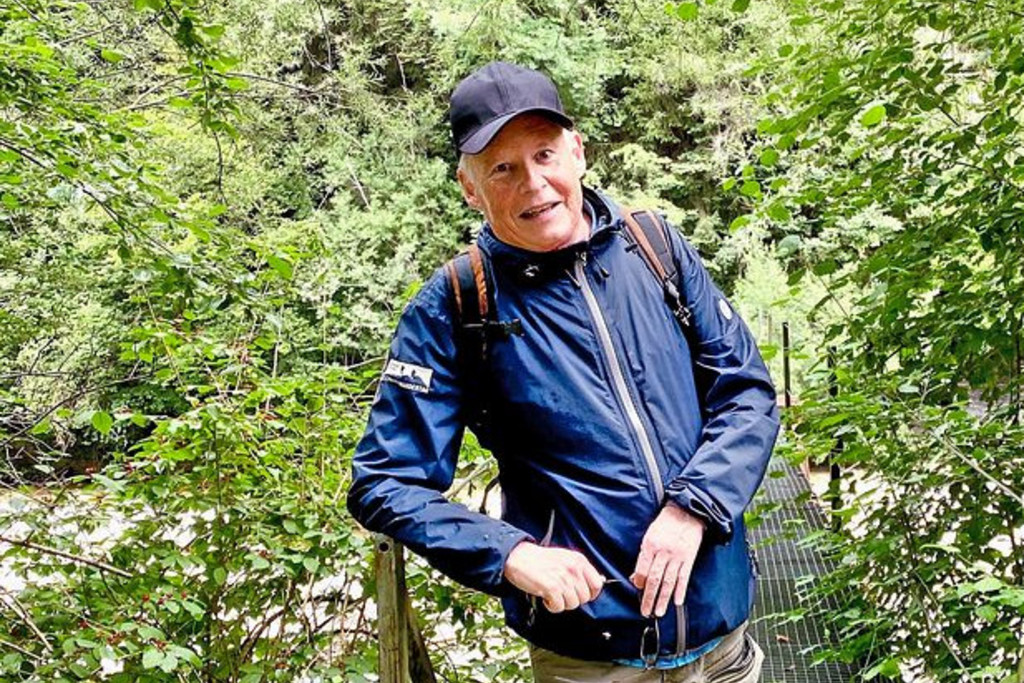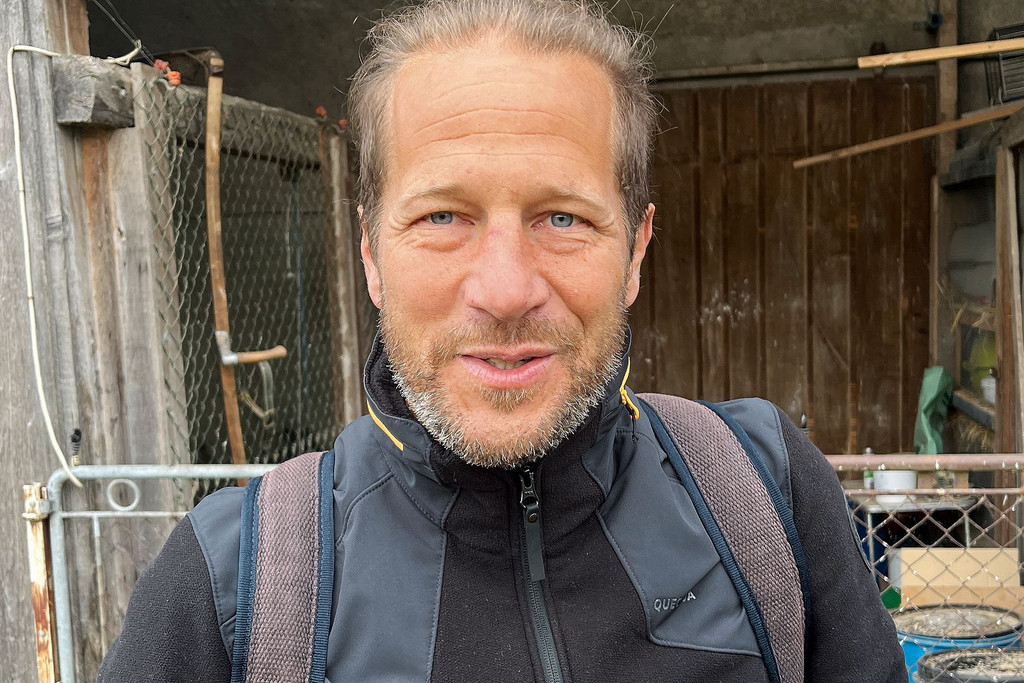“Paradise War” tells the story of the extraordinary life of adventurer and conservationist Bruno Manser, who was born in 1954 in Basel. The film covers the period stretching from his arrival in the Malaysian state of Sarawak in 1984 (“You’re going to die in here” warns the canoeist who brings him to the middle of the forest) until his disappearance in 2000. At that time, the efforts of this conscientious objector, shepherd and alpinist to stop or slow the destruction of the Malaysian forests had been in vain. The filming was an adventure in itself. A team of 150 people lived in the middle of the jungle for three months. “We slept on the ground, on mats. Having to conduct the filming in a foreign language was also particularly difficult,” explains Greutert. In 1992, the producer from Basel met Bruno Manser when the environmental activist visited his school to talk about tropical forests. On set, the inhabitants told of the life of Bruno Manser and their fight to prevent the destruction of their natural habitat. The majority of those involved come from a Borneo tribe called the Dayaks, located in Indonesia, because filming in Malaysia was prohibited by the authorities of the state of Sarawak.
Actors playing themselves
To stay as true as possible to the story, director Niklaus Hilber from Zurich convinced eight members of the Malaysian Penan tribe (the tribe with which Bruno Manser had lived) to participate in the film. This choice meant flying via Jakarta, as the Indonesian Dayak tribe live 200 kilometres away from the Penan. Amongst the actors in this tribe, were Nick Kelesau, who plays the role of Along Sega. This Penan chief had adopted Bruno Manser and described him as “a child in an adult’s body”. Kelesau knew Manser when he was a child. The actor Sven Schelker, who plays Bruno Manser and speaks in the Penan language, touched the heart of the adventurer’s sister, Monika Niederberger. She remembers her excitement when Bruno would take her on walks through the forests of Basel, lifting up rocks to find insects or a lizard.
At times, I really saw Bruno standing in front of me, even if Sven is taller and slimmer.
Monika Niederberger
Bruno Manser’s sister
“This film is my life’s work,” states Valentin Greutert. “It tells the story of humanity. We discover how the nomadic Penan tribe have lived for thousands of years and how capitalism, hungry for resources, has swallowed their forest. It’s also the legacy of a man, as it is the commitment of Bruno Manser which has led to deforestation being written into the global political agenda.” The strength of the film is built on the actors’ identification with their own story. As such, scenes where the Penan construct barricades led the actors to relive moments they had effectively experienced in their own lives.
In the jungle of Borneo, one member of the team had known Manser well: Kasper Müller, an economist and former president of Ethos, a Swiss foundation for sustainable development. Originally from Basel, Müller became close friends with Manser towards the end of the 1990s. Since Manser’s disappearance in 2000, this man has represented the rights of the adventurer and his family. “In Borneo, I saw why Bruno was so happy here, with the Penan, at least until the illegal logging began,” he explains. The economist, who chairs the Commission for Sustainable Development for Basel Kantonalbank and Banque Cler, finds that the film “really shows the systematic connections between our economic system and those of the tribes of the primary forests, as well as how the motive of profit develops new methods for accessing natural resources”. In this configuration, “the enemies of the forest are everywhere, and they don’t even know it,” notes Roger Graf, the director of the Bruno Manser Fund (BMF) in the film.
















Comments
Comments :
All of us who studied intl. development and ethnology subjects during those years, held our breath each time Bruno Manser gave a sign of life, hoping that his efforts were being heard. The silence finally fell heavy like a curtain of doom on him and his people there, and the forests of the whole world, and years have passed slowly. I am glad you are not forgetting him, though I wish the movie would stay closer to the script he had, and that we know where his final resting place is...we still mourn him and his work.
The disappearance of Bruno Manser marked all of us ... students in development studies in Switzerland during the decades he appeared and disappeared then was silent. We so hoped some news would come. A collectve loss in many ways. Am so glad he is not forgotten. ... yet I remain sad and the anger never disappears completely ...
How can we watch this in Canada?
Ich lebte für im Jahre 1972 für einen Monat mit Dyaks in Sarawak und es wurde mir ermöglicht, mit den Punans für eine ganze Woche zusammen zu leben. Sie waren Nomaden und gebrauchten die Blowpipes, also Ihr Jagdwerkzeug.
@ Urs Wenk: Es gibt verschiedene Angebote, den Film zu mieten oder zu streamen. Ein mögliches Angebot ist jenes des Schweizer Anbieters CINEFILE.
Link: https://de.cinefile.ch/movie/23315-paradise-war--the-story-of-bruno-manser?streaming
Zudem ist der Film auch als DVD (ISBN-Nummer 7613059319356) oder auf Blu Ray (ISBN-Nummer 7613059319363) im Handel erhältlich. Zum Beispiel über buchzentrum.ch: https://www.buchzentrum.ch/de/detail/ISBN-7613059319363/Niklaus-Hilber/Bruno-Manser---Die-Stimme-des-Regenwaldes-Blu-Ray